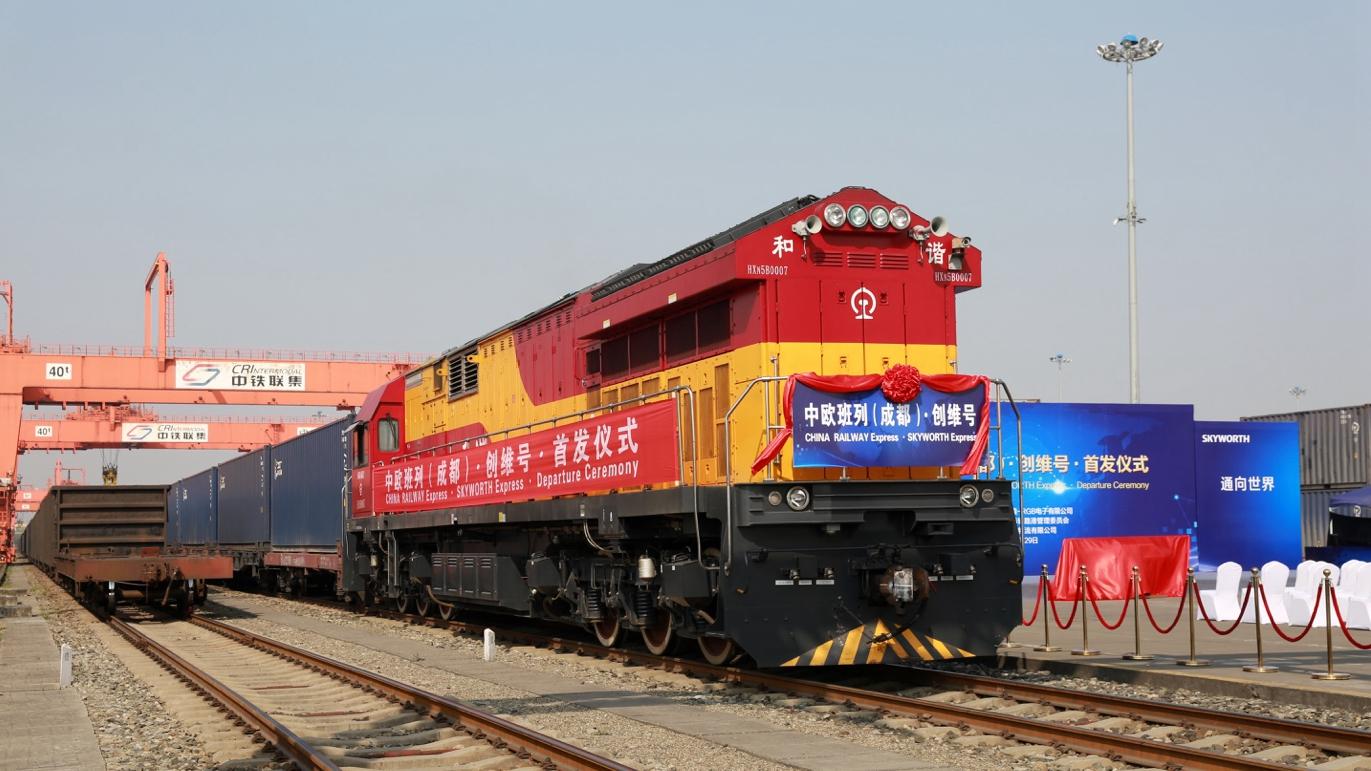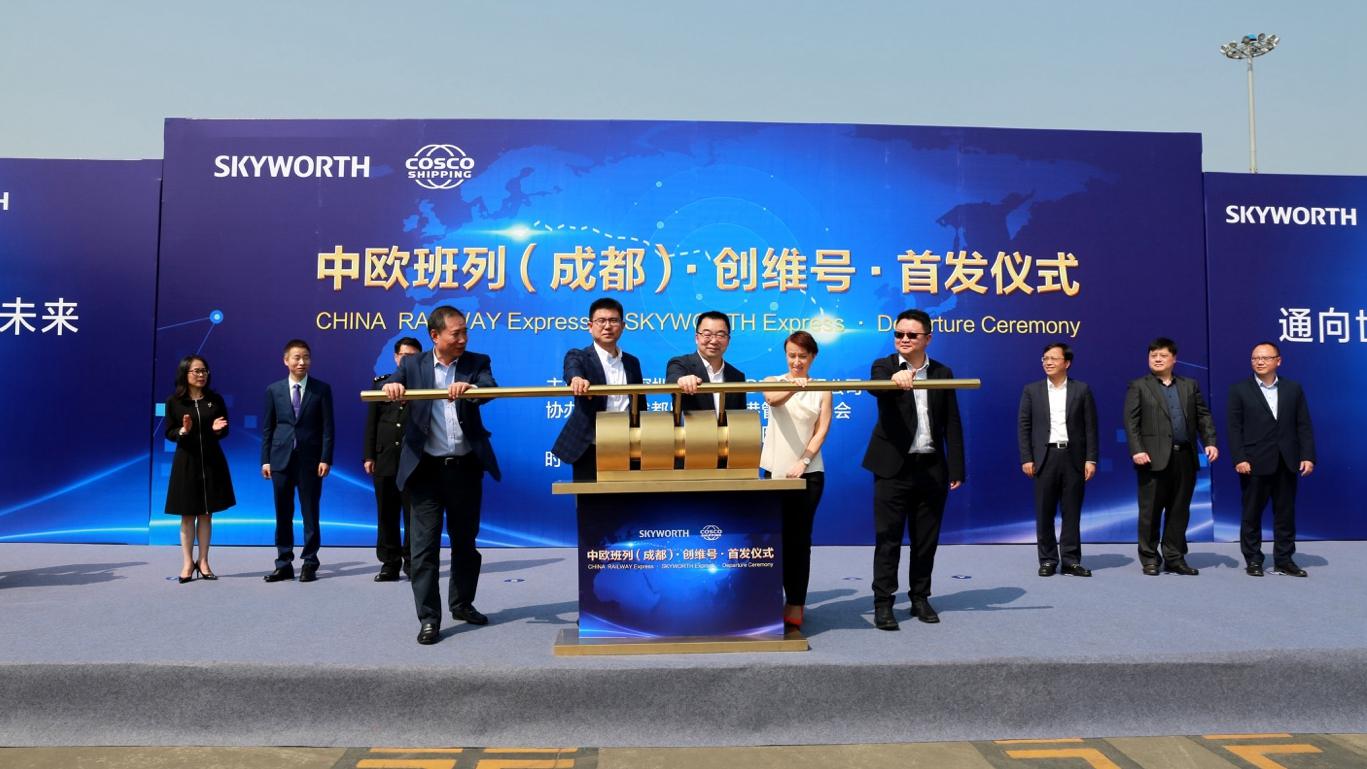
Money Stories
16:09, 09-Apr-2019
Freight trains help unleash China-Europe trading potential
Updated
17:51, 09-Apr-2019
Meng Qingsheng
03:14

China and the European Union (EU) both wield great economic power – and trade is big business. Official statistics show two-way trade between China and the EU hit a record high of over 680 billion U.S. dollars in 2018, up more than 10 percent year-on-year.
The EU has been China's largest trading partner for 15 years in a row, and China has become the EU's second largest trading partner. As CGTN found out, their robust trade relations are being boosted by freight train service.
The China-Europe Railway Express, launched in 2011, has so far connected 59 cities in China with 49 cities in 15 European countries. The China Railway Corporation says the train service made 6,363 trips in 2018, surging 73 percent from 2017.
Chengdu City in southwest China's Sichuan Province is among the busiest cities linking up the two markets. In 2018, the city's international railway port dispatched 1,591 freight trains to Europe. The number, the highest compared with other cities, takes up a quarter of the country's total.
On March 29, television manufacturer Skyworth, based in southern China's Shenzhen City, delivered its first batch of products onboard the intercontinental railway express from Chengdu. The freight train, carrying 41 cabinets loaded with TV displays, motherboards and other spare parts, will arrive in Lodz of Poland in about 10 days.

China-Europe Railway Express from Chengdu opens the first enterprise express for the use of Chinese television manufacturer Skyworth on March 29. /Photo provided by Ji Dexin to CGTN.
China-Europe Railway Express from Chengdu opens the first enterprise express for the use of Chinese television manufacturer Skyworth on March 29. /Photo provided by Ji Dexin to CGTN.
Departing Chengdu City takes roughly two weeks for cargo trains to travel the 10,000-kilometer distance between China and European countries. It's about a month faster than traveling by sea while costing relatively the same. Since it was launched locally in 2013, the logistical solution has helped open up China's hinterland and contribute to a boom in bilateral trade relations.
For the past few years, trains have rumbled along the route, taking IT products, laptops, machinery, garments, auto parts and other Chinese goods to European consumers, while bringing back European food, wine and formula milk, Zheng Quanfeng, director of the Administration Committee of Chengdu International Railway Port, told CGTN.
Based on official releases, Chinese investment now takes up two percent of all foreign direct investment (FDI) flowing into the EU, whereas the EU's investment in China constitutes four percent of the EU's total overseas investment. The trading potential for both sides is huge.
Kasia Wilkowiecka, the consul general of the Republic of Poland in Chengdu, shared with CGTN that she hopes to see enhanced trade relations both ways. The central European country has a bunch of quality goods and service that are eager to enter China's market, like agricultural products and high-tech equipment.
China has recently adopted a unified foreign investment law, landmark legislation that provides stronger protection and a better business environment for overseas investors. The move heralds more opportunities to boost China-Europe trade ties further.

SITEMAP
Copyright © 2018 CGTN. Beijing ICP prepared NO.16065310-3
Copyright © 2018 CGTN. Beijing ICP prepared NO.16065310-3